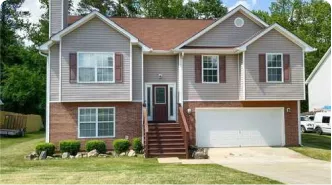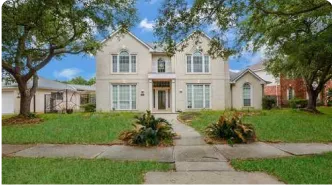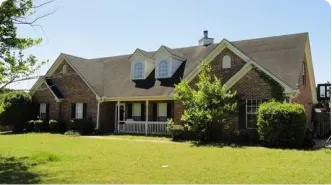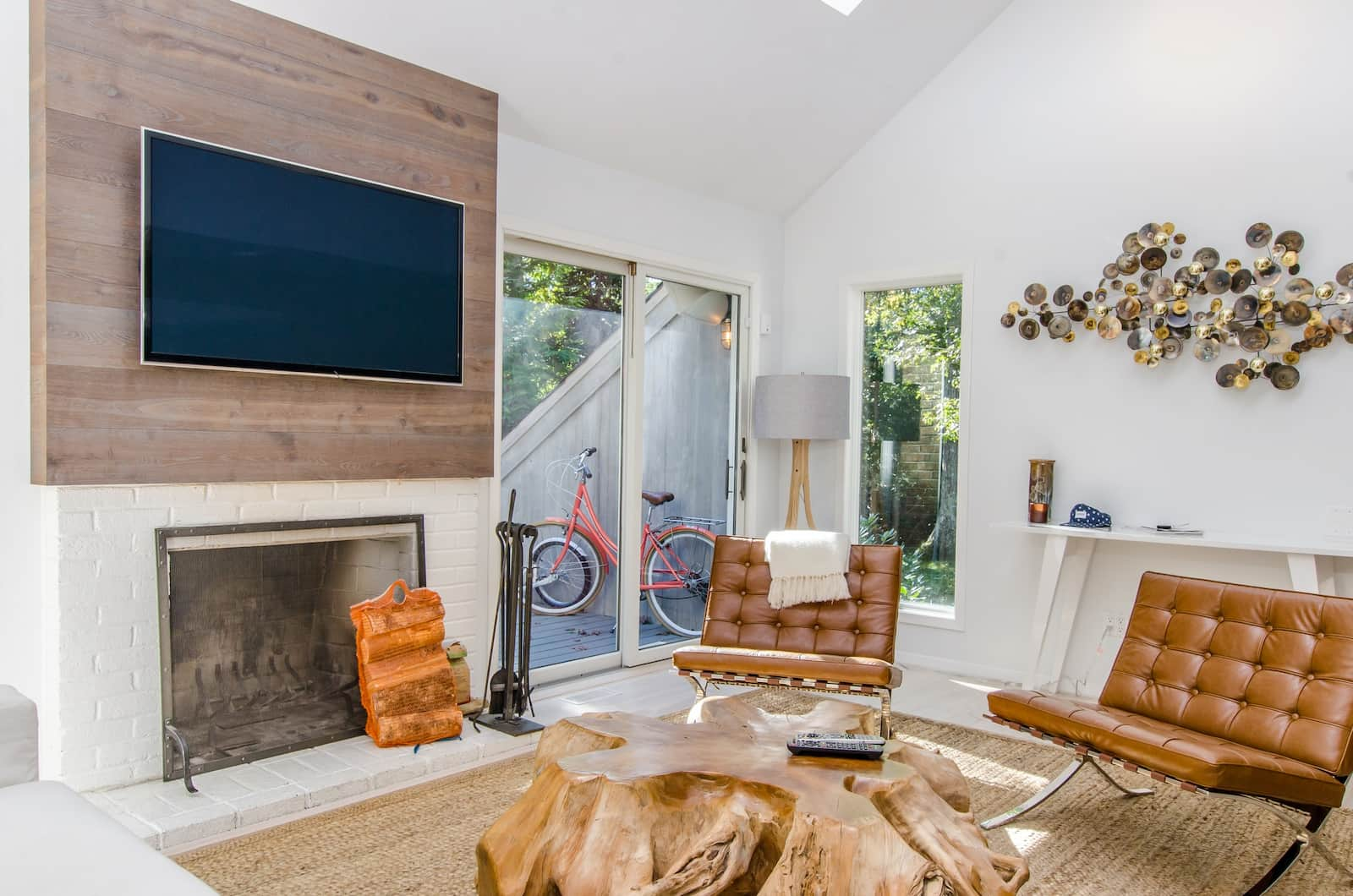The cap rate is a popular metric used by investors to evaluate the profitability of an Airbnb rental property. It allows for quick and easy comparison of the return on investment of multiple markets and properties for sale, and also measures the risk associated with investing in a certain property. In this article, we'll discuss what the cap rate of a short-term rental is, how to calculate it, the factors and risks to consider, how cap rates relate to risk, and what other numbers to consider in investment decisions.
Looking to invest in a vacation rental or Airbnb property? The Awning Airbnb Estimator is here to help! With our free tool, you can easily analyze any U.S. address to get an estimated income from Airbnb. Simply enter the address, number of bedrooms, number of guests, and whether the property has a pool or hot tub. Our machine learning algorithm will use historical data from all U.S. Airbnb listings to provide you with the best possible estimate. Plus, you can browse nearby active Airbnb listings to see how your property stacks up against the competition. With the Awning Airbnb Estimator, you can answer questions like: how much can I Airbnb my house for, what are my estimated earnings from converting my rental into an Airbnb, how much money can I make on Airbnb as a host, and more. Try it out today and make informed investment decisions with the Awning Airbnb Estimator.
What a Short Term Rental Cap Rate Is
In real estate investing, the cap rate - short for capitalization rate - is used to measure two things: 1) the rate of return and 2) the level of risk of an investment property. Traditionally, the cap rate has been used mostly in commercial real estate. However, in recent years small-scale investors use it more and more often to calculate the return on investment they can expect on long term and short term rental properties as well.
So, Airbnb cap rates show what profit you can expect from one or more vacation rentals. That’s why the cap rate is particularly useful when buying an Airbnb property and deciding between a few different locations and/or a few different properties. You can get market-level data to choose the most profitable city for your Airbnb investment. Then you can run the numbers on several properties within your budget to select the one with the highest capitalization rate as that means the highest return.
But we need to give beginner Airbnb hosts a warning here. When investing, high return comes hand in hand with high risk, and the same holds true for the cap rate. The higher the cap rate of a short term rental, the higher the risk of investing in it. And the lower the cap rate, the lower the risk.
As an investor, you need to find the right balance between profitability and the level of risk that you feel comfortable with. While it is natural to want to maximize your return, this pushes up the risk too, so it’s important to keep the cap rate at a reasonable level. Most experienced investors and other real estate experts recommend a good cap rate of 5% to 8%. This range allows you to enjoy a strong rate of return on your Airbnb investment property without risking too much.
If you’ve done research on the short term rental business, you’ve seen investors talk about various other metrics such as rental income, Airbnb occupancy rate, vacancy, etc. All these measures are important indicators and should be taken into consideration when deciding on the best investment. However, none of them provides a complete picture and gives an investor an estimate of what profit they will be able to make on a property. The cap rate, on the other hand, is a comprehensive measure which allows investors to make informed decisions to benefit from the best balance between return and risk.
How a Short Term Rental Cap Rate Is Calculated
Calculating Airbnb cap rates is relatively easy. The cap rate formula is as follows:
Cap Rate = Net Operating Income/Property Purchase Price x 100%
where the net operating income (NOI) equals the gross annual rental income minus the annual operating expenses excluding the financing expenses.
The most significant costs of running an Airbnb business to be included in the cap rate calculation comprise of property tax, property insurance, HOA fees (if applicable), cleaning fees, restocking supplies, utilities, property management, maintenance and repairs, and vacancy. When calculating cap rate, do not include the monthly mortgage expenses.
To make this clearer and easier for beginner Airbnb investors, let’s take a look at the step-by-step process for calculating the cap rate of a short term rental property:
- Monthly Rental Rate: $4,300
- Annual Gross Rental Income: $4,300 x 12 = $51,600
- Annual Operating Expenses Excluding Financing Costs: $23,000
- Net Operating Income (NOI): $51,600 - $23,000 = $28,600
- Property Purchase Price: $350,000
- Cap Rate: $28,600/$350,000 x 100%
- Cap Rate = 8.2%
Once you’ve calculated the cap rate of an Airbnb property, you can use it to compare its performance and risk with other properties and to make a final decision on whether it’s worth investing in this property or not.
If we come back to the example above, the short term rental investigation promises an Airbnb cap rate of 8.2%. This is a great cap rate, especially for a beginner investor, as it assures a good rate of return at a reasonable risk level. Remember, anything between 5% and 8% is considered ideal in real estate investments.
Cap Rate Example With an AirBnB
To make the Airbnb cap rates concept even more relatable and understandable for new real estate investors, let’s have a look at a real-life example. We have an investor who’s evaluating two properties and looking at the cap rate to make a final decision on the better opportunity.
Airbnb Property 1
The first property is listed for $240,000. Based on the performance of Airbnb rental comps in the area, the investor estimates a monthly income of $2,500. It’s a relatively simple house, so the operating expenses are not expected to exceed $12,000. To calculate the cap rate of Airbnb Property 1:
- Monthly Rental Rate: $2,500
- Annual Gross Rental Income: $2,500 x 12 = $30,000
- Annual Operating Expenses Excluding Financing Costs: $12,000
- Net Operating Income (NOI): $30,000 - $12,000 = $18,000
- Property Purchase Price: $240,000
- Cap Rate: $18,000/$240,000 x 100%
- Cap Rate = 7.5%
Airbnb Property 2
The second property is a bit more expensive with an asking price of $300,000. Because it is slightly bigger and can host more people, the Airbnb income is estimated at $3,600 per month. The house requires a bit more maintenance and utilities, so the operating expenses add up to $16,000 per year. To calculate the cap rate of Airbnb Property 2:
- Monthly Rental Rate: $3,600
- Annual Gross Rental Income: $3,600 x 12 = $43,200
- Annual Operating Expenses Excluding Financing Costs: $16,000
- Net Operating Income (NOI): $43,200 - $16,000 = $27,200
- Property Purchase Price: $300,000
- Cap Rate: $27,200/$300,000 x 100%
- Cap Rate = 9.1%
Our calculations show Airbnb cap rates of 7.5% for Property 1 vs. 9.1% for Property 2. In this case, although it costs more to buy and run, Airbnb Property 2 is the better investment alternative because it promises a higher rate of return as measured by the cap rate. The expected rental income should compensate for the higher purchase price and operating expenses.
However, to make a smart investment decision, the investor needs to look at the financing method and make sure that they can afford to finance the purchase of Property 2. Unless they are able to pay for the property fully in cash, the mortgage expenses need to be factored into the decision even though they are not included in the cap rate formula. We will discuss the financial risk in a bit.
Evaluating an AirBnB Cap Rate: What Are The Risks?
As much as investors use the cap rate as a measure of return, it is also a measure of risk. The higher the cap rate, the more risky it is to invest in an Airbnb property for various reasons such as location, property type, regulatory environment, and others. Alternatively, the lower the cap rate, the less risky it is to buy a property.
Naturally, as an investor, you want to avoid unnecessary risk in order to protect your assets. However, choosing lower risk also means settling for lower profits, which is not always optimal in real estate. Thus, you have to learn to balance between the two, that is, to invest in reasonably risky opportunities without leaving too much money on the table.
Now let’s look at the most popular risks associated with starting an Airbnb business and how they relate to short term rental cap rates.
Location Risk
As we know, location is one of the most important factors when making a real estate investment, so the location risk is something that an investor definitely needs to consider. The location risk generally refers to the exact market in which the property is located including the state, the city, the neighborhood, and the exact area and can manifest itself in many different ways when it comes to Airbnb investments.
Some questions to consider about your Airbnb location include:
- Is it a primary market or a secondary or tertiary market?
- Is it an urban location or a suburban or rural one?
- What’s the interest like in short term rental properties?
- Is there seasonality in Airbnb demand?
- What’s the overall state of the economy and of the tourism sector in specific?
- Do visitors come mostly for business or leisure?
- How does the area look?
- Are there any major development and gentrification plans in the pipeline?
- Is the area safe?
- Is it close to business centers or tourist attractions?
- Is the area accessible by public transportation?
You have to look for answers to all these questions in order to correctly evaluate the location risk of an Airbnb investment property. More demand translates into higher stability and less risk but also lower return on investment. That’s why cities like Miami and Los Angeles have lower Airbnb cap rates than their smaller counterparts.
Similarly, investing in a vacation rental property close to public transportation poses less risk but also comes at a higher price, pushing the cap rate down.
To strike the right balance between location risk and good rate of return, look for smaller cities which attract a lot of visitors and for neighborhoods that are safe and well connected. In this way, you will be able to boost your occupancy rate and generate strong revenue without paying an unreasonably high price for your investment.
Property Risk
Another type of risk you need to take into consideration when investing in an Airbnb is the property risk. In addition to the location, the specific property you buy affects your investment in various manners too.
Some questions to consider about your Airbnb property include:
- What property type is it?
- Is it a single-family home, a townhouse, a condo, or an apartment?
- What property class is it?
- How old is the property?
- Has it recently undergone any major repairs?
- Is it in a good state?
- Does it have a swimming pool or other amenities?
Once again, you have to address all these questions to evaluate the property risk associated with your investment and the corresponding cap rate. Generally speaking, Class A buildings make up for less risky investments as they comprise new construction with top amenities in the most desired locations in the local market. These properties offer the lowest cap rate - our measurement of risk but also of profit - as they come at high prices. Meanwhile, Class C and D buildings offer higher cap rates as the risk is higher and so is the potential return.
In a different example, having an Airbnb rental with a swimming pool significantly boosts both your risk and potential rate of return. While maintaining a swimming pool costs a lot and having to replace it with a new one is expensive, you can charge a higher daily rate and attract more occupancy.
To adjust the property risk, search for a short term rental which is relatively simple so it doesn’t require costly maintenance but still boasts some amenities popular in the local market.
Regulatory Risk
When it comes to Airbnb investments, the regulatory risk is significant, much more so than with long term rentals. Short term rental properties are subject to strict regulations and even prohibitions in most of the US market in 2022. The Texas and Florida short term rental laws are just two examples of the restrictions local authorities have been imposing on vacation rentals.
Some questions to consider about local Airbnb regulations include:
- How are short term rentals defined in the local market?
- Are non-owner occupied STRs legal?
- If so, under what conditions can they operate?
- Is there a limit on the maximum number of days that you can rent out per year?
- What are the safety regulations and minimum expectations?
- What’s the general sentiment towards vacation rentals in the area?
- How strong is the hotel lobby?
- Is there a lot of talk about STRs?
- Are there any upcoming political changes?
The answers to these questions will help you measure the level of regulatory risk in the Airbnb market where you consider investing. And this risk will have a direct impact on your cap rates. For example, in cities like New York and San Francisco Airbnb hosts face very restrictive short term rental laws, making investments there risky. But the return can also be strong if you find your way around these restrictions due to the strong demand and the above-average Airbnb daily rates.
To navigate the regulatory risk, it’s recommended to go for markets where local authorities are in favor of short term rentals and the benefits they bring to the economy. If major restrictions get introduced, there isn’t much you can do about it, but most areas have grandfathered in existing Airbnbs. Running an illegal Airbnb business is never a smart decision because of the hefty penalties you might face.
Financial Risk
One more type of risk that is worth evaluating when buying an Airbnb property is the financial risk. Although it is not directly related to the cap rate, it’s important to consider how financing the purchase of your property will affect your bottom line.
Some questions to consider about Airbnb financing include:
- Can you pay in cash?
- If not, what down payment can you afford?
- Do you qualify for a conventional mortgage?
- What type of mortgage is best for you?
- What other alternative financing methods do you have access to?
- What will your monthly mortgage payments look like?
- Can the interest rate be adjusted over time?
Knowing the answers to all these questions is crucial before deciding on a property. The Airbnb cap rate does not get impacted by the method of financing, but other important metrics like the cash on cash return do.
To minimize the financial risk of your investment property and avoid a foreclosure, make sure that you choose a financing method that you can afford both in the short run and the long term. Do not go above your budget to buy a rental property you fall in love with. Remember that this is a business, and all decisions must be treated like such.
Metrics To Consider Besides Cap Rates for Short Term Rentals
The cap rate is an important measure to evaluate the profitability of a short term rental, but it is not the only metric to consider in order to make a smart investment decision.
Here are a few more short term rental investment metrics to look at:
- Airbnb occupancy rate: While occupancy is important when investing in a long term rental property, it is absolutely crucial for the performance of a short term rental. As Airbnb properties get rented out on a daily basis, hosts have to choose markets with strong demand in addition to putting enough effort into marketing their property to ensure occupancy of at least 60%. In brief, the Airbnb occupancy rate tells you how frequently your property is rented compared to the number of days for which you have it available for rent per month or per year. The higher the occupancy rate, the more revenue you can generate.
- Average daily rate: Vacation rentals offer the possibility for dynamic pricing, and hosts need to take advantage of it. This means that you can increase your daily rate during peak seasons and decrease during low seasons to optimize occupancy and maximize how much money you make on Airbnb.
- Airbnb cash flow: The cash flow is the difference between the money coming in and the money going out of the pocket of an Airbnb host, in other words, the difference between the rental income and the recurring rental expenses. To run a profit, it is a must to invest in properties that promise a positive cash flow. Otherwise, you risk losing money instead of making money with Airbnb.
- Airbnb profit margin: Yet another way to calculate the rate of return of your short term rental is the Airbnb profit margin. This is a slightly more flexible metric than the cap rate which measures the ratio between the revenue of an Airbnb property and its expenses.
- Airbnb cash-on-cash return: Last but not least, when evaluating a short term rental investment opportunity, you have to look at the cash-on-cash return. The disadvantage of this metric compared to the Airbnb cap rate is that it requires more numbers and takes more time to calculate. The advantage, on the other hand, is that it provides a more comprehensive analysis of the profitability of a rental property. This is because it considers the method of financing and factors the size of the overall investment.
Takeaway
The Airbnb cap rate is a great starting point when shopping for a short term rental property. It offers a straightforward way to compare markets and properties and to measure not only return but also risk. However, to make the best investment decision, you need to look further and deeper and consider other metrics as well. In 2022 access to data and analytics is power in real estate investing.
.svg)






.webp)







%201.webp)
%203.webp)



%201.webp)
.webp)





